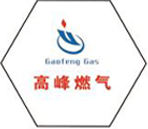
Oct . 22, 2024 02:25
Back to list
Innovative Approaches to Natural Gas Filtration and Purification Technologies
Natural Gas Filtration Ensuring Clean Energy Supply
Natural gas is increasingly becoming the energy source of choice for many countries around the world due to its cleaner combustion properties compared to coal and oil. As natural gas plays a crucial role in the energy mix, the importance of efficient filtration systems cannot be overstated. Proper filtration of natural gas is essential to ensure that it is free from impurities and contaminants before it reaches end-users, ensuring not just performance and reliability but also safety in various applications.
One of the primary reasons for natural gas filtration is the presence of contaminants that can affect its quality and performance. Common impurities in natural gas include dust, rust, water, and heavier hydrocarbons such as oil and condensates. These contaminants can be introduced during the extraction, transportation, and storage processes, and unfiltered gas can lead to numerous operational problems such as corrosion in pipelines, the malfunctioning of gas appliances, and increased emissions.
To mitigate these issues, a variety of filtration technologies are employed across the natural gas supply chain. The most common types of filters used include coalescing filters, particulate filters, and membrane filters. Coalescing filters are designed to remove water and other liquid contaminants by grouping smaller droplets into larger ones, which can then be drained away. Particulate filters capture solid particles, ensuring that only clean gas moves downstream. Moreover, membrane filters utilize selective permeability to remove specific contaminants, providing another layer of assurance in gas quality.
The choice of filtration technology largely depends on the specific application and the level of purity required. For instance, in power generation and industrial applications, the emphasis may be on ensuring that heavy hydrocarbons are removed to prevent damage to turbines and other equipment. In contrast, for residential applications such as cooking and heating, the focus might be on removing particulates and moisture to ensure safe and efficient operation of gas appliances.
natural gas filtration

Another critical aspect to consider in natural gas filtration is the impact of the filtration system on energy efficiency. Inefficient filters can cause increased pressure drops, which result in higher energy consumption for gas compression and transportation. Thus, it is imperative to regularly maintain and replace filters to ensure they operate at optimal efficiency, thus minimizing energy wastage and operational costs.
In recent years, advancements in filtration technology have introduced new materials and designs that improve the efficiency and effectiveness of natural gas filters. Nanofiber technology, for example, offers extremely high filtration efficiency while maintaining low pressure drops, paving the way for more sustainable practices in the industry. Additionally, smart filtration systems equipped with sensors and digital monitoring capabilities are emerging, allowing for real-time assessments of filter performance and conditions, thus optimizing maintenance schedules and reducing downtime.
As the global push towards cleaner energy continues, the importance of natural gas filtration will only grow. Governments and regulatory bodies are increasingly emphasizing stringent quality standards for natural gas, necessitating the adoption of advanced filtration technologies. Furthermore, with the rise of renewable gases such as biogas and hydrogen, filtration systems will need to adapt to new types of contaminants and requirements, ensuring that they remain integral to a sustainable energy future.
In conclusion, natural gas filtration is a vital component of the energy supply chain. It plays a crucial role in maintaining the integrity and safety of natural gas, ensuring that it remains a preferred choice in the global energy landscape. Continued innovation and investment in filtration technologies will be essential to meet the demands of a cleaner, more efficient energy future.
Next:
Latest news
-
Safety Valve Spring-Loaded Design Overpressure ProtectionNewsJul.25,2025
-
Precision Voltage Regulator AC5 Accuracy Grade PerformanceNewsJul.25,2025
-
Natural Gas Pressure Regulating Skid Industrial Pipeline ApplicationsNewsJul.25,2025
-
Natural Gas Filter Stainless Steel Mesh Element DesignNewsJul.25,2025
-
Gas Pressure Regulator Valve Direct-Acting Spring-Loaded DesignNewsJul.25,2025
-
Decompression Equipment Multi-Stage Heat Exchange System DesignNewsJul.25,2025

